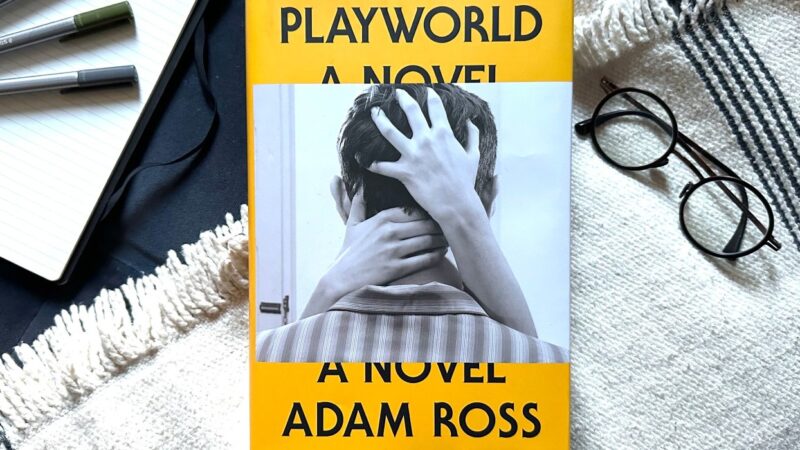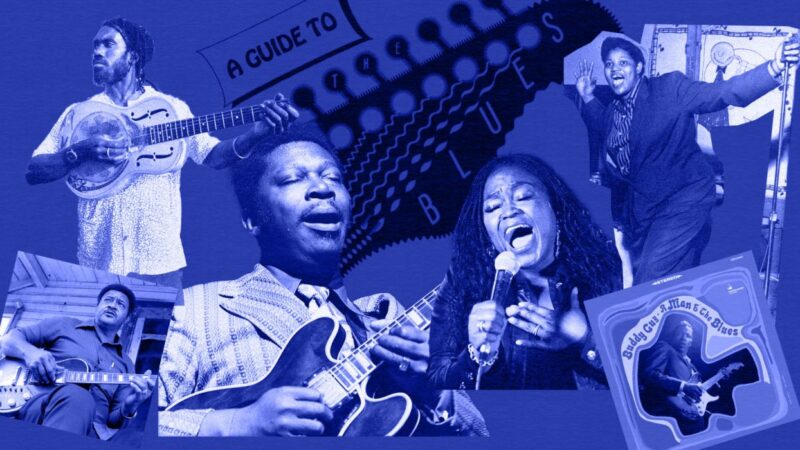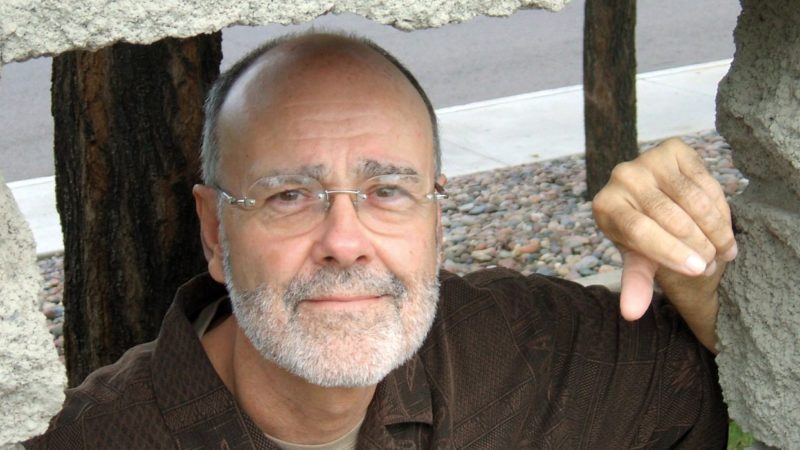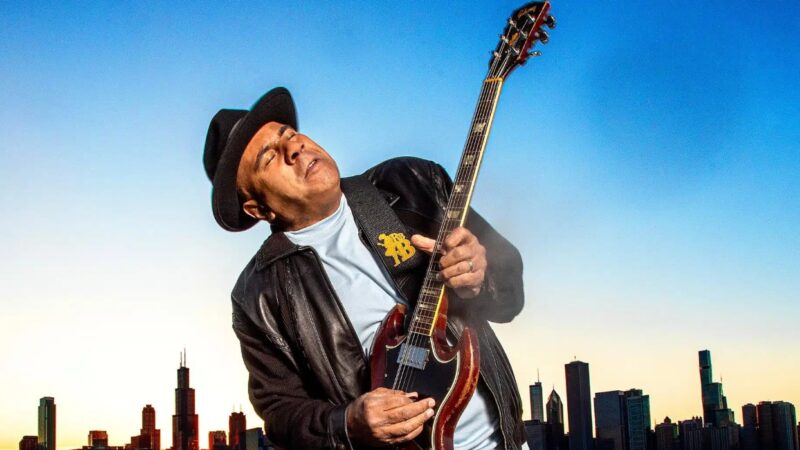Recent Posts
Scroll down to browse or click a button to select a category. Lots more content on the way.
Pull down menus at the top include active Author and Music Weblinks where you can easily explore 100’s of favorites and up and coming artists.
Music/Books/Art and More
On the Bookshelf – Recent Reads
On the Bookshelf – Recent Reads
Authors, many without websites or first-time published, some newly discovered by RTA, from or about locations around the world.
The novel is considered a compelling character study, with narration offering an adult’s look back on his youth with newfound understanding – Adam Ross – Playworld
The novel centers on the protagonist, Griffin Hurt, a 14-year-old child actor who plays the lead in a hit TV show called The Nuclear Family. Set against the backdrop of Manhattan in the early 1980s, Griffin navigates a world of blurred boundaries and adult excesses.
Praised as a “bold new writer” and with ten books to his credit, he goes on this page after reading just one – Charlie Donlea – Long Time Gone
As we expect to read many others, and will build him his own post once we add a few more to our book list, this thriller grabbed us from page one. The story and main character explore the emerging field of forensic genealogy and the link that her own DNA reveals.
You’ve probably heard about “Walking the Camino.” You may know people who have done it. Read this – Suzanne Redfearn – Call of the Camino
We don’t often place an author with their own Roaming the Arts post on this list, but we are making an exception. This is an inspiring story about so many things, one of which is the level of effort that most people don’t imagine they are capable of. The author was able to walk the walk and has written a terrific character-driven novel.
Story of a great film director making a late career movie – Jonathan Coe – Mr. Wilder and Me
Billy Wilder made some of the most iconic movies of his time, Some Like It Hot, The Apartment, Irma la Douce, Front Page, The Fortune Cookie, to name just a few. This historical fiction piece is told through the eyes of a young Greek woman who meets Wilder and his team and winds up working on the 1977 production of the film Fedora.
Irish family saga over decades up to 2008 recession – Paul Murray – The Bee Sting
Paul Murray’s The Bee Sting is an irresistibly funny, wise, and thought-provoking tour de force about family, fortune, and the struggle to be a good person when the world is falling apart. Told by four family members, father, mother, daughter, son, each a voice in conflict with the moment. Over 500 pages. Stay the course.
Another first book makes lasting impression – Amanda Peters – The Berry Pickers
An amazingly perfect use of the device where the reader is shown where the story will go, but is often brought near tears on the way. The story of two families, two cultures, and both love and heartbreak throughout a lifetime. An especially good read.
What happened when Dorothy returned to Kansas? – Gordon McAlpine – After Oz
With the release of “Wicked” on film, Dorothy is once again topical and Oz again a fantasy destination. This novel, the author’s last before his untimely passing, suggests what may have happened in the days and months after the tornado that whisked the young girl away and back again.
Fantasy author delivers a terrific crime thriller – Dave Dobson – What Grows From the Dead
North Carolina college professor, improv comic, and writer provides an ensemble cast supporting an unlikely hero who has hit bottom in life and career, only to find he had inherited little from his mom except trouble.
New book about an old city – Ruth Reichl – The Paris Novel
Novelist and food writer takes us to Paris in the 1980’s with a young woman needing to find herself (not a cliche, but a charming rendition and tour guide). Book Club book, gourmet treat, and travel instigator, and already looking at flights.
American Literary Icon who passed away in 2023 – Russell Banks – American Spirits
An American treasure whose stories focus on the locales and people in the Adirondacks of upstate New York. Check out this recent PBS video tribute and a 1995 feature on CBS Sunday Morning which gives an interesting perspective on what young people cared about…30 years ago.
From the 1990’s – Henning Mankell – Faceless Killers
Terrific series taking place in Southern Sweden and featuring Wallender, a main character played deftly on the PBS series by Kenneth Branagh.
New book from old favorite – Tim O’Brien — America Fantastica
An American Master returns: the author of The Things They Carried and In the Lake of the Woods delivers his first new novel in two decades.
First-time author – Nilima Roa — A Disappearance in Fiji
What is told as a mystery is really an amazing history lesson of British colonialism, and Indian and native culture in the Fiji Islands off the coast of Australia in 1914.
Blues Time with Bill Wax
Bill Wax on the Blues
For those who are unfamiliar with me, I was the Program Director and Host of Bluesville on XM Satellite Radio. The channel was renamed B.B. King’s Bluesville in 2008. I managed the channel from its inception until 2013, when I retired. I also have over 35 years of experience in non-commercial radio, both as a host on various Blues and Rhythm and Blues shows and as Program Director at two stations: KOPN in Columbia, MO, and KBOO in Portland, OR.
I never thought much about writing until they reached out to me about working on Roaming The Arts. They were quite convincing, and I loved the concept for the website. So here I am. I hope to promote contemporary blues musicians, as well as recognize those who have already left the stage.
Watch Bill tell his story on Time Signatures with Jim Ervin ( from Capital Area Blues Society – Lansing, Michigan)
There are two men in the music I want to highlight in our first post.
The first is David Earl, founder and owner of Severn Records, a label located near Annapolis, MD. David passed on September 7, 2025, at the age of 57. I first met David in the early to mid-1990s, when he started showing up at open mics with his guitar and eventually played in a couple of DC/Baltimore Blues bands. In 1997, David began Echo Records and changed its name to Severn Records in 1998. The catch phrase for the label was ‘Roots Music for the 21st Century, and that is just what his label became. His first three releases were Darrell Nulisch’s “The Whole Truth”, Big Joe Maher’s “I’m Still Swinging”, and Benjie Porecki’s “Servin’ It Up”. His label has since issued over 60 discs. Some of the artist who have recorded for Severn, an incredible roster, include: Steve Guyger, Sugar Ray and the Bluetones, Lou Pride, Mike Morgan and the Crawl, Tad Robinson, Jimmy Earl, Kim Clark Organ Trio, Ola Dixon, Roy Gaines, Louisiana Red, J Street Jumpers, Nora Jean Burso, Roy Carrier, Bruce Katz, Alex Schultz, Buck Hill, Clarence Spady, Charles Wilson, Johnny Moeller, Mud Morganfield, The Nighthawks, The Fabulous Thunderbirds, Bryan Lee, and Ursula Ricks. Below is a starter list of some of my favorite tunes from Severn’s catalogue:
Roy Gaines – Hind Ends and Elbows
Darrell Nulisch -Leaving On the Morning Train
Clarence Spady – Just Between Us
Sugar Ray and the Bluetones – The Last Words of a Fool
Tad Robinson – Broken Hearted Man
Mud Morganfield/Kim Wilson – I Love the Life I Live
Ursula Ricks – My Street
The Nighthawks – Damn Good Time
Big Joe and the Dynaflows – How Come People Act Like That?
Steve Guyger – I’m Shakin’
Happy 100th Birthday B.B. King – September 16, 2025 (click link for a welcome rememberence)
The second musician I want to highlight is Sherman Holmes, the last man standing from the Holmes Brothers Band. They were a roots blues music group that was active between 1975 and 2015. They recorded 11 discs and won two Blues Music Awards. Sherman turned 86 on September 29, 2025. One of the most rewarding benefits of doing a radio show is that you never know who is listening. Sherman’s cousin is a fan of my radio show on WPFW. He heard me announce that I was going to play several tunes featuring Sherman and contacted Sherman so he could listen. I, of course, was both honored and touched that Sherman might be listening. I was also a bit intimidated that he might be listening. After the show, I got a note to call Pinky Sherman, who lives with Sherman. They called to thank me for playing the tunes and remembering Sherman and the Holmes Brothers. It made my week, and when Pinky told me Sherman was smiling, well, that makes it all worthwhile. Below is a starter list of some of the songs that Sherman sings lead on with the Holmes Brothers or from his solo disc called “The Richmond Sessions”:
Sherman Holmes/Joan Osborne – Dark End of the Street
Holmes Brothers – There’s A Train
Holmes Brothers – Promised Land
Holmes Brothers – If I Needed You
Holmes Brothers – If I Had a Boat
Holmes Brothers – Something Is Missing
Thanks for reading and listening.
More About Bill
Search for Bill’s on air shows at: “Roots and Fruits” on WPFW
Click here for posts of Roaming the Arts’ collection of Blues artists.
- All Time Favorites34
- Art/Artists12
- Blues/Soul/R&B30
- Book Club20
- Books by Location41
- Books/Authors101
- find new music17
- indie music artists61
- Little Known Heroes17
- Music158
- Music Cruising5
- Music Festivals and Live Venues7
- new music finder0
- Recent Work from Favorites20
- Roaming the Arts Radio8
- Roots/Americana8
- The Back Page6
- Uncategorized1
- Who is Hot10
- Word & Film26
Roaming the Arts Radio
Launch – Roaming the Arts Radio on Spotify
All Set Playlists open in Spotify and are free to listen to whether you subscribe or not.
(Click “Show All” when playlists are on screen)
Time Capsules and Progressive Radio Sets created over more than 45 years.
Each Time Capsule was created in the year shown. (1975-1994)
Followers are saying they have listened while driving cross country and have not run out of music.
Sample Playlists:
What is your favorite year?
Roaming Artist’s Studios
Music gets airplay and bands appear live, authors books make best-seller lists and get promoted through Book Bub and other media. Visual artists create their work in a studio, hope that people will see it and appreciate it, and attempt to create an online presence to assist in that goal. This post allows Roaming the Arts to be a patron, visit studios, and drive traffic to those websites. This site will not comment on the art, for indeed, “the eye of the beholder” applies here, so click either the name or the image and visit the site.
Atizana Inspired – Haitian Art
Creating art from metal, including oil drum lids.
Kelsey
Originals and prints from an artist working in the Arts Warehouse in Delray Beach, FL
Deborah Kozak
Hand-made, original woodcut, linocut and drypoint prints.
Jess Burbridge – Ceramics

Artist in Residence at Arts Warehouse in Delray Beach, where she works in porcelain and stoneware.
For more artist posts – click here
Rickie Lee Jones
Molly Tuttle
Molly Rose Tuttle is an American vocalist, songwriter, banjo player, guitarist, recording artist, and teacher in the bluegrass tradition. She is noted for her flatpicking, clawhammer, and crosspicking guitar prowess. Wikipedia
“A female flat picker extraordinaire with agility, speed, and elegance who distinctively brings American roots music into the spotlight.”—NPR
“A vibrant blend of bluegrass with flashes of Old West, anchored by Tuttle’s earthy-yet-angelic vocal and the entire group’s ace musicianship.” —Billboard
Raised in northern California, singer-songwriter and bluegrass musician Molly Tuttle moved to Nashville in 2015. In the years since, she has been nominated for a Best New Artist Grammy and won awards for Album of the Year at the 2023 International Folk Music Awards, Female Vocalist of the Year at the 2022 International Bluegrass Music Awards, and Instrumentalist of the Year at the 2018 Americana Music Awards. She also won consecutive Guitar Player of the Year awards from the International Bluegrass Music Association in 2017 and 2018—and was the first woman to win the award, let alone win it twice.
Tuttle and her band, Golden Highway, released their latest album, City of Gold, in July 2023. The Grammy-winning album followed Tuttle’s acclaimed 2022 record, Crooked Tree, which also won a Grammy for Best Bluegrass Album. Produced by Tuttle and celebrated progressive bluegrass musician Jerry Douglas, City of Gold was inspired by Tuttle’s constant touring with Golden Highway, during which she and the band have grown and cohered as musicians and performers. Musical Instrument Museum
Her song Crooked Tree (video w/Jerry Douglas) also visits the subject of Alopecia Areata (article) and Molly.
Molly Tuttle has ushered in an exciting new chapter in her career by forming an all-female touring band, stepping away from the four-year run with Golden Highway. This change aligns with the release of her new solo album So Long Little Miss Sunshine, set for August 15, 2025. It signals a stylistic expansion beyond bluegrass, blending pop, country, and rock – a direction further emphasized in her all-female backing band choice.
James (Jim) Sallis
James Sallis
R.I.P.
James Sallis (born December 21, 1944 in Helena, Arkansas, United States) is an Americancrime writer, poet, critic, musicologist and musician, best known for his series of novels featuring the detective character Lew Griffin and set in New Orleans, and for his 2005 novel Drive, which was adapted into a 2011 film of the same name.
Acclaimed author James Sallis died on Jan. 27, 2026, at the age of 81, after a long battle with illness. Sallis was a native of Helena, Arkansas.
Sallis may have been known for his novels, but he was more than just an author. He was also a creative writing teacher, musician, screenwriter, periodical editor, book reviewer, and translator.
As posted by Poison Pen Bookshop – Scottsdale, AZ :
“We are very sorry to have to share that author James Sallis passed away on Tuesday, January 27, 2026, peacefully, with his wife Karyn by his side, after a long illness. No funeral is planned. If you feel moved to donate in his memory, the family suggests ACLU or the Humane Society as worthy charities that Jim valued.”

Film – Drive starring Ryan Gosling
Ronnie Baker Brooks
Ronnie Baker Brooks is a prominent American Chicago blues and soul blues guitarist, singer, and songwriter who has carved out a unique identity while honoring his “blues royalty” lineage as the eldest musical son of the late legendary Lonnie Brooks. Born in Chicago in 1967, he has emerged as one of the most electrifying and innovative bluesmen, blending traditional Chicago blues with elements of soul, electric blues, rock, and funk.
Brooks began his musical journey at an early age, first performing on stage with his father at just nine years old. He initially joined his father’s band as a roadie, working his way up through hard work and determination before becoming the full-time second guitarist. He learned not only from his father but also from blues greats such as B.B. King, Buddy Guy, Albert Collins, and Koko Taylor. Koko Taylor notably told him, “You learn from your daddy everything you can. And one day, it’ll be up to you to carry the blues forward,” a mandate he took to heart.
Embarking on a solo career in 1998 with his debut album Golddigger, Brooks established his own sound and label, Watchdog Records, which also released Take Me Witcha (2001) and the critically acclaimed The Torch (2006). His music is often described as witty, soulful, and ferociously energetic, with “astonishing guitar work” and a powerful stage presence. He views his role as a bridge between the traditional blues of his mentors and the younger generation, incorporating modern musical influences like hip-hop to ensure the genre’s continued evolution.
Ronnie’s 2017 album, Times Have Changed, produced by Steve Jordan, featured collaborations with an array of talent, including Bobby “Blue” Bland in one of his final recorded works.
Blues in My DNA, released in October 2024 on Alligator Records, marks his debut on the prestigious label that was home to his father. The album has been a major success, earning Brooks three 2025 Blues Music Awards: “Song of the Year” for the title track, “Contemporary Blues Album of the Year,” and “Contemporary Blues Male Artist of the Year”. This recognition solidifies his place in the upper echelons of the blues world, an honor he now embraces with pride rather than obligation.
Roaming Categories
- All Time Favorites34
- Art/Artists12
- Blues/Soul/R&B30
- Book Club20
- Books by Location41
- Books/Authors101
- find new music17
- indie music artists61
- Little Known Heroes17
- Music158
- Music Cruising5
- Music Festivals and Live Venues7
- new music finder0
- Recent Work from Favorites20
- Roaming the Arts Radio8
- Roots/Americana8
- The Back Page6
- Uncategorized1
- Who is Hot10
- Word & Film26















